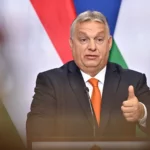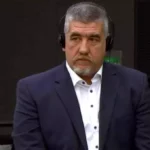After Qatar, is another World Cup possible? Brussels MP Ecolo Thomas Naessens wants to open the debate.
Corruption when it was awarded, embezzlement in the European Parliament, climate heresy, several thousand deaths to build infrastructure, non-respect of human rights: the Qatar World Cup was one of the most controversial events of 2022. At home, many football lovers saw a boycott as unnecessary and late (“it was at the time of the award 10 years ago that we had to oppose it”). With various partners, we organized the “Alternative World Cup Brussels 2022” bringing together civic, sporting, cultural and festive events. So many events that brought together many supporters through a positive, constructive and local approach. While celebrating sport for and by all, the objective was to collectively discuss the tools to be put in place to ensure respect for human rights and protection of the environment in international competitions.
As a reminder, the International Football Federation (“FIFA”) is an association governed by Swiss law which defines the rules of football and organizes the World Cups. It brings together 211 national associations which implement the FIFA rules on their territory. In theory, FIFA does not have the power to interfere with state power. In practice, the geopolitical and economic weight of the World Cup gives FIFA enormous power. For Ecolo, it is clear that FIFA should impose on the organizing countries and their contractors better respect for human rights and the environment, for example, via the specifications of the procedures for awarding the World Cups.
Today, the many controversies surrounding Qatar 2022 have once again illustrated that FIFA does not consider respect for human rights and the environment to be fundamental and that it escapes all democratic control. Moreover, FIFA has many expansion projects (Club World Cup in 2025, World Cup 2026 with 48 countries organized jointly by the USA, Canada and Mexico, etc.) which are totally contrary to the necessary measures in the face of climate change and the collapse of biodiversity. So what to do to avoid crying in 10 years?
Ecolo’s Two Demands Are Simple:
Firstly, the Belgian football federation, when it takes part in the allocation of host countries, must ensure that its choice is transparent, validated by democratic authorities, and uncompromising on social and environmental standards. A generalization of this posture to all members of the European Union would have much more weight. The debate must therefore be brought to both Belgian and European level.
Secondly, Ecolo recommends the implementation of the “duty of vigilance” in Belgian and European law. This new rule would require companies to be legally responsible for human rights and environmental violations involved in their activities, even if they are located abroad. In the context of international competitions, this would apply, for example, to Belgian and European multinational companies active in the construction of infrastructure for major sporting events. Currently, thanks to the work of the associations, proposals are under discussion at Belgian, European and worldwide level.
Environmental crises are prompting us to question our ways of living, producing, consuming, moving around and therefore also that of conceiving high-level sport. The model of international competitions as promoted by FIFA and other sports bodies is not sustainable. Let’s open the debate without delay.
What form should top-level sport and more specifically major sporting competitions take?
What role do some top athletes and entertainment stars play in spreading an imaginary of overconsumption?
How should the (public) media deal with international events in countries that violate human rights and destroy the planet?
What diplomatic posture should our official representatives adopt at these events? Shouldn’t this be discussed beforehand with Parliament?
For Ecolo, to be able to reclaim sport, it is necessary to redefine the roles and responsibilities of the various actors and actresses and to change the current model. The “Alternative World Cup Brussels 2022” reminded us that sport and football in particular are real vectors of social ties and that the conditions for the emergence of a more responsible sport are already present. Together, let’s bring the Cup back to its senses!
This article is originally published on levif.be









